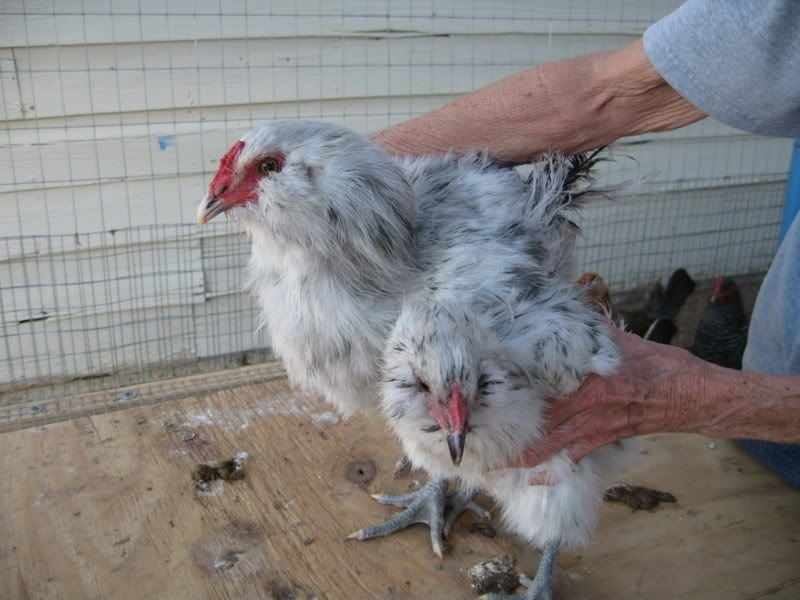I have two Splash Ameraucanas that are 18 weeks old. Their feathers are so strange, almost like fluffy silkie hair, not feathers. I don't know what you would call this. It's not like a frizzle. Has anyone else seen this on Ameraucanas?
Also I've thought the bigger one was a rooster, because it's had a red comb very early, but at 18 weeks it has never started crowing and likes to sit in the nest boxes alot. It really doesn't have any other characteristics of my Ameraucana rooster, so I'm starting to think maybe it is a hen after all. What do you think?
I feel stupid for asking, but I'm fairly new. My other Ameraucanas are EE's from the hatchery. These two I hatched from shipped eggs and I've never seen feathers like this before.

Also I've thought the bigger one was a rooster, because it's had a red comb very early, but at 18 weeks it has never started crowing and likes to sit in the nest boxes alot. It really doesn't have any other characteristics of my Ameraucana rooster, so I'm starting to think maybe it is a hen after all. What do you think?
I feel stupid for asking, but I'm fairly new. My other Ameraucanas are EE's from the hatchery. These two I hatched from shipped eggs and I've never seen feathers like this before.








